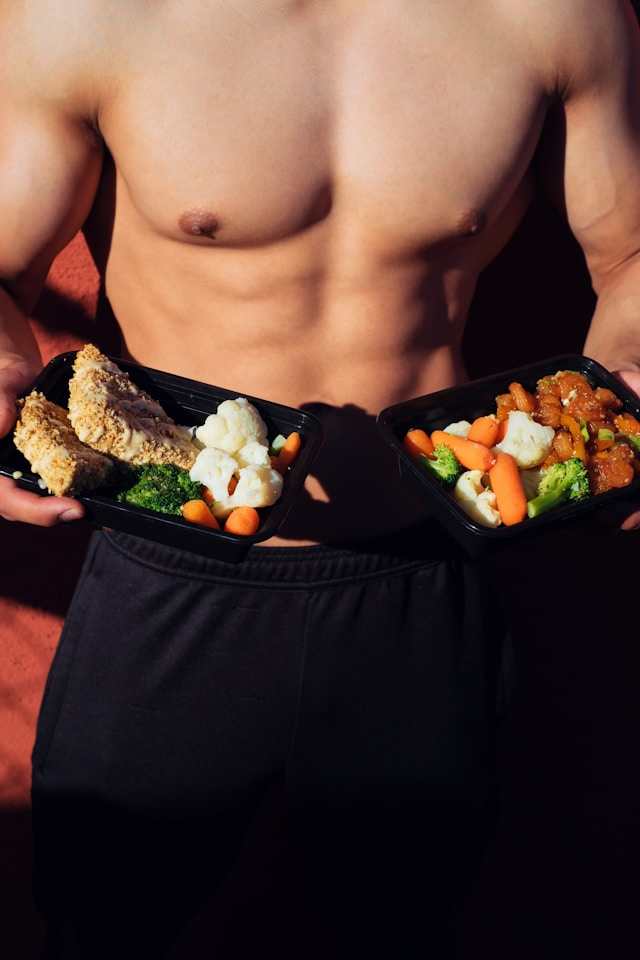Get In Touch
Info@fitfaysal.com

Hey friends, this post contains affiliate links. If you purchase something from them, I may earn some protein money! Here's the full disclosure
Everyone knows most of our fitness efforts will come from the kitchen, but most people still don’t seem to take it seriously.
We often think that once we get our workout in, the rest is just “being extra.”
Lifting weight feels good; you feel good when you hit a new PR in the gym; you feel good when you push yourself hard through a workout.
However, eating clean, especially, is the not-so-fun part, and it can get difficult trying to figure out macro distributions for each meal, getting the right amount of protein in, and picking between the many supplements that are constantly pushed down our faces.
Do you need to do all this perfectly to lift better and achieve a great physique?
Not really.
However, after lifting consistently for a long time, you may reach a point where you hit a plateau. Righting these nutrition mistakes may just be what you need to take things to the next level.

A lot of people fall into this common nutrition mistake for this first reason: because they don’t want to gain body fat.
And hey, I understand. It can be hard to see your abs wash away, to see your face get puffier, and to see your bicep vein shrink, which is why most people try to do body recomposition.
However, sometimes you have to do what is required.
What is required is going on a calorie surplus to gain a bit more size so you can lift heavier and build more muscle mass.
The second reason is that they think it isn’t necessary. They focus their efforts on working out and ignore the nutritional side. Or they think they can “Maingain.”
Maingaining works to an extent but is it as effective as going through the time-tested bulking and cutting phases? Not quite.
Increase your total daily caloric intake and you will start to see an increase in strength and muscle gain.
The rave of the keto diet and other protein-heavy meal plans has taken everyone by storm, with carbs being labeled almost as a villain.
However, carbs are still one of the 3 major macronutrients required for optimal muscle growth and performance.
Consuming carbs gives us the energy required to push through tough workouts, so we shouldn’t avoid them.
However, this isn’t an excuse to start gauging donuts again; I mean healthy carbs like brown rice, oats, and sweet potatoes.
Related: Do You Need Carbs to Build Muscle? (See What Science Says!)
Most lifters tend to focus primarily on hitting their macronutrients (proteins, fats, and carbs) but overlook the importance of micronutrients like vitamins and minerals.
Micros are also essential for our body, and a body that functions properly will build strength and muscle.
So here are two quick tips:
Most people are stuck in the constant cycle of bulking and cutting phases. Here’s how this scenario typically goes:
They go on a bulk with resistance training for 4-5 months (which is usually not enough time to build sufficient muscle), then they try to cut as quickly as possible just to realize they aren’t unsatisfied with their muscle mass, and then repeat the same process.
This is a huge waste of time. The best way to build muscle size and strength is to commit to the bulk for a long time.
Here are some nutrition tips for bulking:
After the bulk, you need to go on a slow cut. Taking the cut slowly with enough protein ensures you retain as much muscle mass as you can while losing weight.
Check out: The ONLY Guide to Cutting You Will Ever Need

Relying too heavily on supplements as a shortcut instead of obtaining essential nutrients from whole foods is a problem.
Lately, I’ve come across a lot of videos of “fitness influencers” showcasing the mountain of supplements they take daily.
Obviously, it’s just a marketing ploy to sell more supplements, so don’t fall for it.
The only supplements I take are protein powders – to increase my protein intake and creatine.
Try to get as many nutrients as you can from whole foods.
Identify the ones you need but can’t get enough from foods; then use supplements as a compliment, not a replacement.
There are various versions of extreme diets. These are diets that lean excessively on one end of the spectrum.
I believe these types of diets have become popular due to internet hype and advertising. You may see some short term results, but they generally aren’t good for people long term.
Some of these diets include the following:
These are some examples of extreme diets. I believe we should always aim for balance, both in the kitchen and in the gym.

Tracking calories and macronutrient intake isn’t fundamental to achieving a good, lean body, but it is essential to achieving an aesthetic physique.
The majority of lifters won’t have to track calories; in fact, they won’t want to, and I don’t blame them. It’s strenuous having to log in everything you eat.
I would only suggest bodybuilders track calories and macros when they’re trying to achieve a specific goal with precision.
An app that I have always relied on for tracking is MyFitnessPal 🙂
It can be complicated at first, but if you want to take your nutrition to the next level, tracking is key.
It is a huge mistake to follow generic nutrition plans without considering individual differences in goals, preferences, and responses to specific foods.
I see people online asking each other: “What’s your meal plan, bro?” as if we’re all equal, or like we all require the same levels of macros and micros.
Here’s what you should do instead:
This is not nutrition in and of itself, but failing to take electrolytes before a workout can result in dehydration, muscle cramps, and poor performance.
Electrolytes, including sodium, potassium, calcium, and magnesium, are essential for maintaining proper hydration, supporting muscle function, and regulating nerve signals.
Here’s what you should consider doing for enhanced performance: